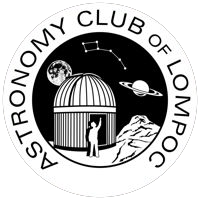A Brief History of Astronomy
by Vahan Yeterian
Before Pythagoras, there were several notable figures and cultures that contributed to the development of mathematics and early scientific thinking. Here are a few:
Egyptians: Ancient Egyptians had a practical understanding of geometry, particularly for land measurement and construction (such as the pyramids). They used basic principles of right triangles and the Pythagorean theorem, though they didn’t formalize it as Pythagoras did.
Babylonians: The Babylonians had a strong grasp of mathematics, especially in relation to astronomy and trade. They used a base-60 numeral system and had early knowledge of geometric principles, including a version of the Pythagorean theorem.
Sumerians: Sumerians, in Mesopotamia, developed early forms of arithmetic and geometry. They created the earliest known written number system and had practical methods for measuring areas and volumes.
Thales of Miletus: Thales is often considered one of the first philosophers and mathematicians in ancient Greece. He is credited with some early geometrical insights, such as the idea that a circle is bisected by its diameter, and he used geometry to solve practical problems.
Anaximander: A pupil of Thales, Anaximander also made contributions to geometry, particularly with the concept of the "apeiron" (infinity) and some early forms of cosmological mathematics.
Hippocrates of Chios: Not to be confused with the famous physician, this Hippocrates was a mathematician who worked on the quadrature of the circle and geometric proofs. He is one of the early Greek figures who studied the properties of geometrical shapes.
These figures and civilizations laid the groundwork for later developments in mathematics, including the work of Pythagoras.
| Scientist | Lifetime |
|---|---|
| Sumarians | 2900-2334 BCE 4th millennium |
| Babylonians | 626-539 BCE |
| Anaximander | 610-546 BCE |
| Anaxagoras | 500-428 BCE |
| Pythagoras | 570-495 BCE |
| Socrates | 470-399 BCE |
| Hippocrates of Chios | 470-410 BCE |
| Plato | 427-347 BCE |
| Aristotle | 384-322 BCE |
| Aristarchus | 330-310 BCE |
| Archimedes | 287-212 BCE |
| Eratosthenes | 276-194 BCE |
| Hipparchus | 190-120 BCE |
| Ptolemy | 100-170 2nd CE |
| Copernicus | 1473-1543 |
| Tycho | 1546-1601 |
| Galileo | 1564-1642 |
| Kepler | 1571-1630 |
| Isaac Newton | 1643-1727 |
| Herschel (William) | 1738-1822 |
| Herschel (John) | 1792-1871 |
| Max Planck | 1858-1947 |
| Einstein | 1879-1955 |
| Hubble | 1889-1953 |
| Carl Sagan | 1934-1996 |
BCE is Before Common Era
BC is Before Christ
CE is Common Era
AD is Anno Domini (In the year of our Lord)
